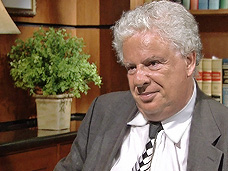
Martin Sieff
Martin Sieff is a Senior Fellow of the American University in Moscow and former Managing Editor, International Affairs at United Press International. He is the author of Cycles of Change: The Three Great Cycles of American History and the Coming Crises That Will Lead to the Fourth (2015) available from www.martinsieff.com
Washington will continue to feed growth of ISIS and rise of Iran even while US policymakers imagine they are doing the opposite.
For Saudi Arabia and the Gulf states, the security challenge of the coming year is clear: It will be to contain or adapt to the further expansion of the Islamic State (ISIS) in Iraq and Syria and to the continued rise in power and influence of Iran in Iraq.
The prime dynamic behind both of these developments will continue to be the policies of the US government: Washington will continue to feed the growth of ISIS and the rise of Iran even while US policymakers imagine they are doing the opposite.
The wisest things the US government could do to prevent the growth of ISIS would be:
First, end drone strikes that slaughter far more civilians than terrorists.
Second, support the existing governments in Egypt, Saudi Arabia, Jordan, Turkey, Pakistan and the Gulf states as strongly as possible.
Third, the Obama administration and Congress should just shut up. They should quit endlessly lecturing the traditionally US-friendly governments in the region to spread "freedom” and "democracy” the American way. That magic elixir has never succeeded in improving conditions in any country where it has been applied.
Fourth, the US government should fire its endless armies of Washington think-tankers and "consultants” who swarm over the Middle East like locusts, relentless in their energy, unbelievable in their arrogance, obvious in their ignorance and incompetence.
We have seen the results of their activities in Iraq, Libya, Yemen and elsewhere. Their efforts at nation-building are risible wherever they have been applied.
Fifth, US policymakers should actually start taking the advice of officials who serve successful, stable governments throughout the Gulf, in Saudi Arabia and in Jordan. The Obama administration, like the catastrophic George W. Bush administration, has never done this.
However, it is certain that none of these modest, practical and essential policies will be applied. Instead, the infernal rhythm of US drone and manned air strikes in Iraq and Syria will continue, creating more recruits for ISIS with every attack.
The United States will continue to pour billions of dollars of state-of-the-art equipment to the hollow Iraqi formations it insists on "training” from scratch, oblivious to the fact that it has failed to create any credible government or policies in Iraq to earn the respect and loyalty of the Sunni Arab population of the country.
As these policies continue to fail, as they certainly will, US President Barack Obama and Secretary of State John Kerry will reach out in desperation for the support of an enemy that despises them — the Shia rulers of Iran.
Iranian influence over Iraq will continue to grow, the military power of the Shia militias in Iraq will continue to expand and the United States will continue to foster these processes even though they are totally antithetical to US national interests.
Policymakers in Riyadh, Amman, Cairo and Ankara should certainly use every diplomatic and military channel they still have to persuade Washington to advocate more sensible and potentially successful courses of action. Unfortunately, experience teaches us that they will, as usual, be ignored.
Successful Arab governments will have no choice but to cooperate as best they can with each other, ignore the siren songs of US recommendations that are bound to be catastrophic, keep their own security forces as strong, well-financed and efficient as possible and seek to maintain constructive relations with Tehran insofar as this is possible.
This bleak picture is very different from the childish displays of macho, can-do optimism that issue daily from the State Department, the White House and the Pentagon. But Arab leaders, pundits and policymakers live in the real world and do not need to rely on such ridiculous fantasies.



_jpg/250px-ElbeDay1945_(NARA_ww2-121).jpg)





